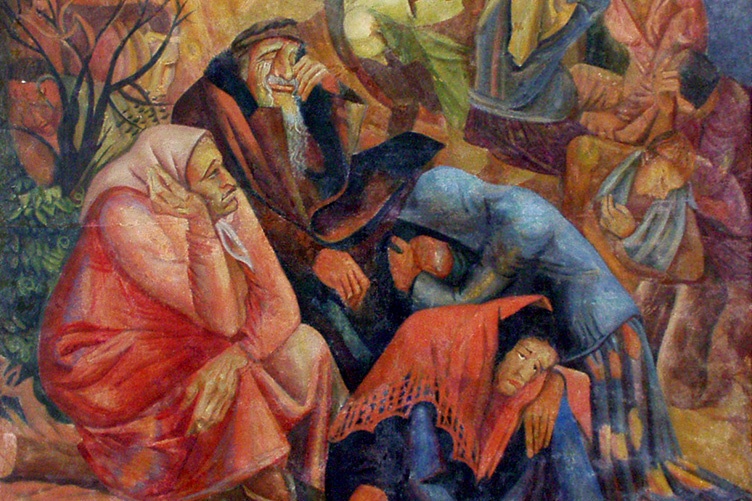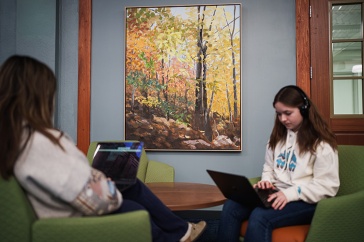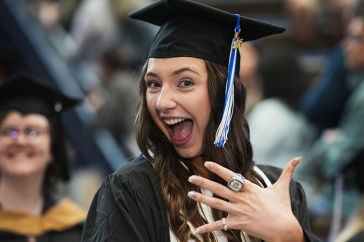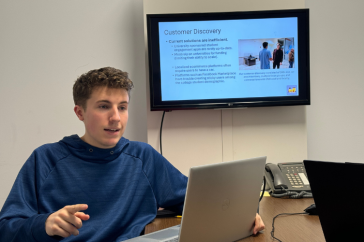
The artwork from Elissa Bemporad's book, “Legacy of Blood: Jews, Pogroms and Ritual Murder in the Lands of the Soviets.” Bemporad was the 2022 Hans Heilbronner Lecture Series speaker at UNH (watch lecture). The series is supported by the college's Endowed Fund for Holocaust Education.
Today, less than ten percent of the genes of Jews living in the 13th century still exist. Think about that for a second. When we talk about genocide, that’s the kind of impact that defines the term. The 20th century Holocaust carried out by the Nazis played an important role in bringing about this grim figure, but it received lots of help through centuries of antisemitism and antiJudaism. Putting this historical record in its broader perspective will be the aim of the college’s next phase of Holocaust education.
When emeritus professor of history Jeffry Diefendorf retired in 2016 as the first appointee to the Ruth Shulman Professorship of European and Holocaust History, the university lost a significant voice in Holocaust education. Marla Brettschneider, political science and women’s and gender studies professor, became the second Schulman Professor, organizing lectures and publishing books on Jewish feminism and political discourse in Sub-Saharan Africa during her term. This year, the college announced that Samantha Seal, associate professor of English, has been named to the professorship.
Seal’s appointment, which takes effect in July, coincided with a new gift to the college to support Holocaust-related education, the Werner Family Fund. “I think we all recognize that for newer generations of students, we need to augment their knowledge of this world-changing event,” noted Michele Dillon, dean of the College of Liberal Arts. “As time passes and fewer witnesses are alive to tell their stories, we need to continue to study the long precursors and repercussions of the Holocaust that still impact us today.”

While the university has sponsored numerous lectures on the Holocaust, including the college’s Hans Heilbronner Lecture series since 2007, Seal says she wants to use her appointment to foster a more vibrant Jewish presence on campus. “I hear from a lot of students who come up to me in my classes, when I teach about antisemitism or antiJudaism in Medieval Europe, and say they want to connect with other Jewish students, have Jewish role models on campus and see more Jewish content in their classes.”
To kick things off on the content front, the English Department will teach Art Spiegelman’s graphic novel “Maus” in all sections of English 419, How to Read Anything, during the upcoming fall semester.
Looking at antisemitism, as well as Jewish contributions to world culture, across the centuries will take some collaboration and syllabus-tweaking from Seal’s colleagues in history, literature, sociology and other disciplines. This will form one key area of her focus. Another focus will involve fostering a richer Jewish presence through tighter partnerships with local organizations such as Chabad and Hillel in Durham, as well as Temple Israel in Portsmouth and temples in Manchester. “We need to reach students who aren't necessarily interested in religion, but are interested in Jewish culture, Jewish history and just kind of connecting to each other.”

Further from home, since 2017 professor of German Charles Vannette has led a summer program in Berlin where he travels with 15 students for a six-week immersion in European culture. The program includes intensive readings in European and Holocaust history and visits to museums and concentration camps. In 2022, students will visit the Buchenwald camp and Jewish Museum in Berlin. Vannette knows in large part what to expect in such visits to places where such unspeakable cruelty was meted out with industrial precision to so many people. “They are usually quiet, solemn observances,” he says. “And there are tears shed.” The program not only affords students the opportunity to see and learn about European history in the place and culture where it happened, but also to reflect on human nature, the power of propaganda and the challenge of facing tragic and unpleasant aspects of their culture.
Back at UNH, Vannette says he integrates something concerning the Holocaust in every course he teaches, “whether it's very small in the introductory language courses, or whether we're getting into more in-depth stuff.” He hopes to coordinate a fall history course and a spring literature film course sequence on the Holocaust, and encourage students to enroll in both to get varied perspectives for understanding the Holocaust, and to use funding provided by the Werner Family to coordinate that with a trip to the Holocaust Memorial Museum Washington, DC.
Given this energy and activity, one can imagine a flourishing of Jewish studies at UNH in the coming years, one that includes not only death and diaspora but also the extraordinary contributions Jewish peoples made to medieval history, literature and philosophy — and not only in places like Germany, England and other European countries, but also in North Africa and the Middle East.
“Jews were participating in the main events and daily life of whatever time they were in and were writing in Hebrew but also other languages,” Seal noted. “How fascinating to learn what this contribution might be!”
-
Written By:
Dave Moore | Freelance Writer
















































